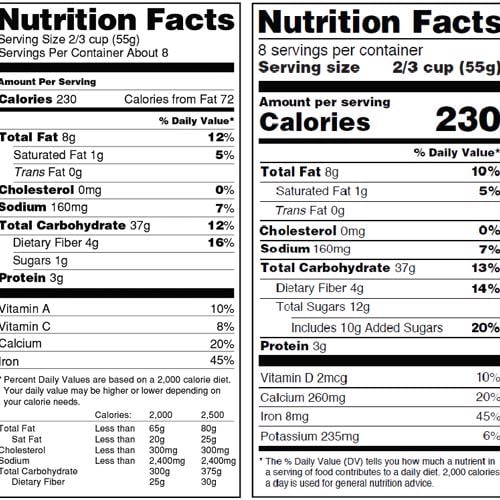
Dangerous chemicals, such as certain gases or pesticides, might require to be stored in a particular temperature or only be near specific items that will not cause certain reactions.
Where the finest products along with everything you need for “do-it-yourself” label printing are just a click away.
Call Now: +1-866-299-0066 or Live Chat

The North American Free Trade Agreement has been a source of contention and debate in political and economic circles since its initial ratification, back in the early 1990s. During the 2016 U.S. elections it functioned as a lightning rod of discussion between legislative and presidential candidates, with conservatives decrying its effects on American manufacturing and progressives in the U.S. and Mexico alike discomfited by the problems it has caused for lower-income farmers and factory workers.
President Donald Trump made renegotiation of NAFTA one of his major 2018 priorities and has threatened to withdraw the U.S. from the trade treaty. Most recently, the conferences centered around this renegotiation of NAFTA shifted to a somewhat unexpected area – the regulations governing food and drink labeling.
Negotiating camps from the U.S., Canada and Mexico are disputing the particulars of explicit descriptions of certain nutritional dangers.
Negotiating camps from the U.S., Canada and Mexico are disputing the particulars of explicit descriptions of certain nutritional dangers. It is unclear how this specific discussion will progress – and how much weight it will carry in the long run of NAFTA talks – but food and drink manufacturers would do well to monitor the issue for its duration. It may also be prudent to consider purchasing new label printers to provide better designed, more thoroughly compliant nutrition facts for their packaging.
The New York Times reported that a proposal from the United States Trade Representative team – which, as an executive-branch agency, represents the viewpoint of the Trump administration – would prevent any nation involved in NAFTA from legally requiring large and noticeable warnings about high fat, sugar or caloric content in food and drink. Per its specific wording, the provision posits that such a warning, like the large warning boxes or symbols seen on cigarette packs in some countries, would “inappropriately denote that a hazard exists from the consumption of … food or nonalcoholic beverages.”
Trade Representative spokeswoman Emily Davis would not directly comment on the proposal itself, which was delivered anonymously to the NYT, instead saying, “The United States supports science-based labeling that is truthful and not misleading.”
Representatives from the Grocery Manufacturers of America occupy prominent positions on the business advisory board interacting with the Trade Representative’s office, however, and the GMA has long moved to curb any notion of mandatory nutritional labeling. By contrast, the organization, whose board members come from Coca-Cola and many other corporations states that it supports “voluntary labeling” requirements.
However, groups in favor of stronger nutritional labeling from elsewhere in North America, such as Mexico’s El Poder del Consumidor, have been subjected to measures like illegal government surveillance at the behest of food lobbyists, and have a dim view of manufacturers’ stated intentions. Alejandro Calvillo, founder of El Poder, elaborated on the NAFTA aspect of this matter.
“It is one of the most invasive forms of industrial interference we have seen,” Calvillo told the newspaper. “The collusion between the industry and the government is not only at the level of spying – it reaches the level of the renegotiation of NAFTA and the nation’s own policy against obesity.”
Each year, the Organisation for Economic Cooperation and Development compiles a report on the state of obesity as a global public health issue. For the 2017 edition, Mexico and the U.S. came in first and second place with the two highest rates of adult obesity throughout the population, coming in at approximately 40 percent and and 35 percent, respectively.
Government agencies like the Centers for Disease Control and Prevention and the National Institute of Public Health of Mexico view obesity as a crisis of significant magnitude, and so does the World Health Organization. As such, the Trade Representative proposal would directly conflict with these authorities.
According to the NYT, the government of Chile instituted strict warning requirements on food and drink high in fats or sugars in 2016, many of which are black with descriptions in large fonts of the problematic ingredients. This would represent the apotheosis of the food industry’s fears regarding such regulations, but as noted above, food trade groups seem opposed to any sizable mandatory warning.
The Hill reported that Canadian and Mexican authorities engaged in the NAFTA renegotiations are considerably more in favor of the Chilean model – or some version of it, using noticeable shapes and colors – than the U.S. Other countries in Central and South America, such as Uruguay, Brazil, Colombia, Peru and Argentina, have also explored the possibility of instituting such a policy.
Alexandra Jones, a lawyer employed by the Australia-based George Institute for Global Health, spoke highly of how effective Chile’s regulations have been in an interview with the NYT.
“Chile’s warnings are the new frontier,” Jones told the news provider. “They represent a potentially much more effective public health intervention: Warn people away from the ubiquitous junk foods.”
It remains to be seen whether these specific proposals will go through, and what their ultimate effects on the revision of NAFTA will be. Food and drink companies may want to be safe rather than sorry and visit the DuraFast U.S. site or Canadian site to find label software, printers and accessories that will help them address any forthcoming compliance needs.